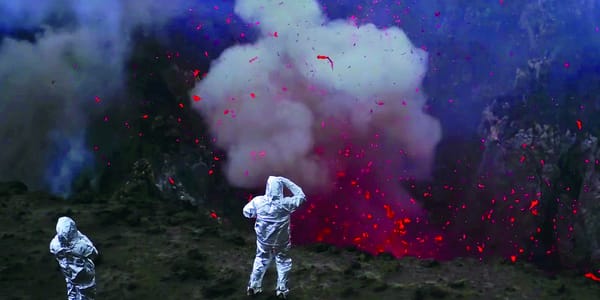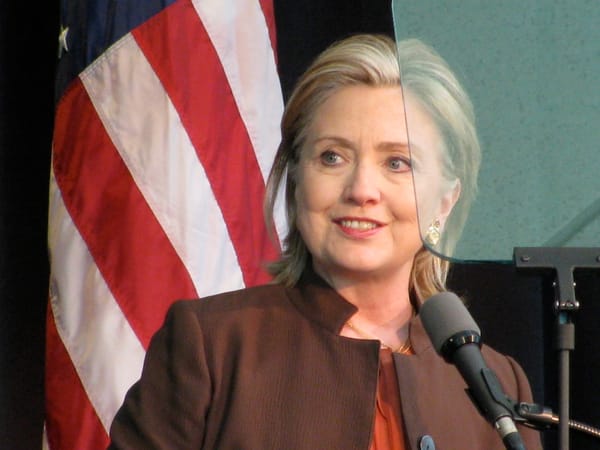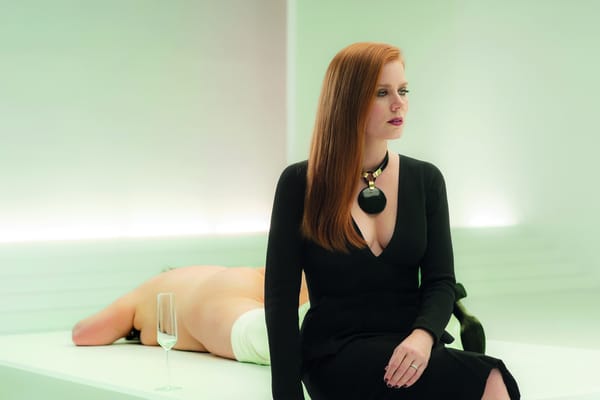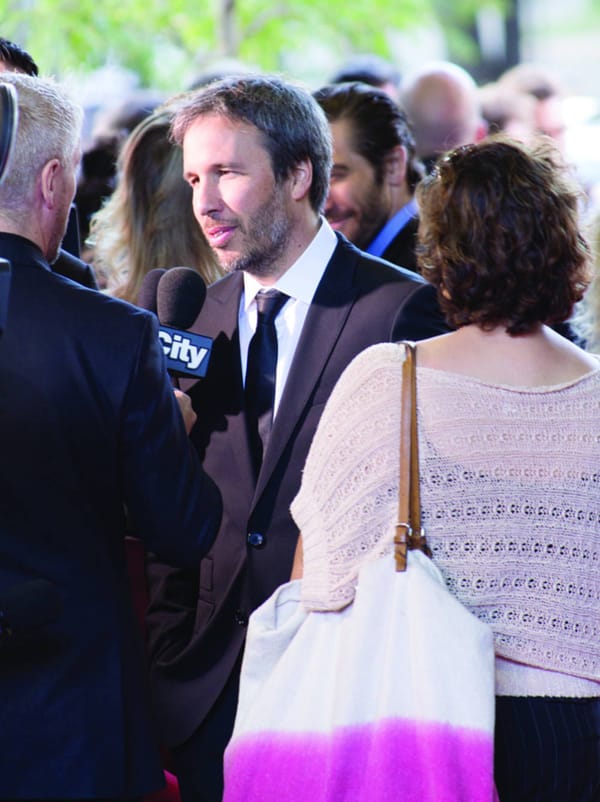The new faces of satire
Can comedy instigate political change?
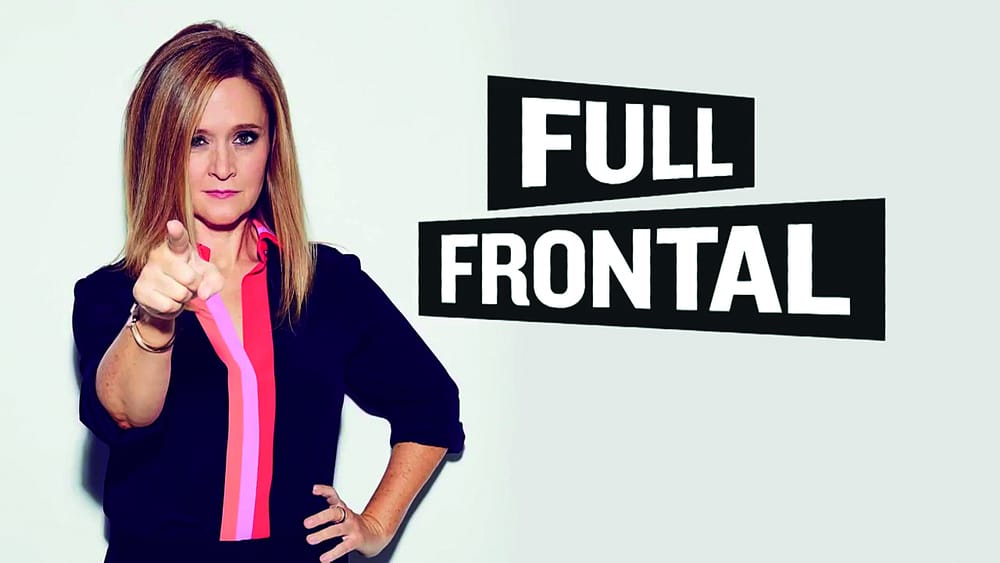
Does comedy television have the power to change political conversation? On the face of it, the purpose of satirical news is to reflect the headlines, draw humour from what seems often to be ever deepening pit of despair. ‘Look up, do you see it? Way up there- that’s rock bottom,’ remarked John Oliver a few weeks ago on Last Week Tonight in response to the latest Trump scandal.
In America, comedy news shows have evolved from a platform for clever jokes to an increasingly impassioned closer look at the state of the country and its affairs. More than the actual news, liberal comedy has become the bastion of progressive debate.
This shift may well be the legacy of Jon Stewart, who during his 16 year reign at the helm of The Daily Show, made his mantra on bullshit: ‘If you smell something, say something.’
Several of the comedians who have taken up the mantle of activism through comedy started their careers on The Daily Show under Stewart’s tutelage. Samantha Bee is one such comedian. When Jon Stewart retired earlier this year, Bee, who had been a long time correspondent on the show, was for many, one of the favourites to fill the position. She quashed any hopes that she might take over by choosing to create her own show, and it may well prove to be the best decision of her career.
Full Frontal With Samantha Bee is a show built in The Daily image, the original liberal satirical news behemoth. Yet, in hosting Full Frontal, Bee has become the first woman to host a late night comedy show in America. She is keen to step out of Jon Stewart’s shadow and create the equivalent of Nicki Minaj’s ‘Pinkprint’ as opposed to Jay Z’s ‘Blueprint’ if you will. At the beginning of each episode, Bee strides onto the stage in statement blazers and skinny jeans like a punk rock Angela Merkel to the sounds of ‘Boys Wanna Be Her’. Then, instead of sitting behind a desk, she stays standing for the whole half hour. This is a superficial difference but belies a more profound one. A sense of urgency and anger runs through Full Frontal; where others shows quip with a deft lightness, exasperated at the political scene’s descent into lunacy, Bee attacks. Watching Bee is akin to listening to your smartest, funniest, more eloquent friend rant about the election. It’s not gag-a- minute, but it rings truer, and hits harder than overly polished puns.
Full Frontal often goes beyond the headlines to find local stories and wider context issues. Over the previous weeks, Bee has tackled the rise of the Alt-Right, the descent of the GOP into the clutches of its Tea Party extremist, she has tackled abortion laws, gun rights, LGBTQ, and the hold of the church over healthcare. She tackles these issues with vehemence, and a clarity of purpose that goes beyond trying to get some laughs in.
She is keen to step out of John Stewart’s shadow and create the equivalent of Nicki Minaj’s ‘Pinkprint’ as opposed to Jay-Z’s ‘Blueprint’
There is a sense that Bee wants to make a difference, a desire to engage the disenfranchised young people who want to get involved but don’t always know all the facts, and not just be an echo chamber for liberals. This desire to be better than her predecessors extends to behind the scenes. Bee employs the greatest proportion of female writers of any of the comedy shows, and has made efforts to amplify the voices of her minority writers rather than package and present their views herself. In a segment dealing with Black History Month, it was writer Ashley Black, not Bee, who rubbished the white conservatives that use Dr. Martin Luther King Jr’s ‘I have a Dream’ speech to justify ‘all lives matter’. She also called for ‘Black Now Month’, a month in which we celebrate the work and lives of black activists and heroes alive today, rather than ruminate on an imagined sixties.
The 2000 elections, with all its twists and turns, and the Bush presidency that followed proved the making of Jon Stewart. This election, with its twists ripped straight from Shonda Rimes’ most fevered imaginings, is proving the making of Samantha Bee.
Hers is a voice that is all too rare in both comedy and politics: a fiercely liberal, angry, sarcastic, and unapologetically feminist voice.
This week Bee interviewed Barack Obama and travelled to Russia to interview two internet trolls employed by the Russian state to spread pro-Russian messages across various internet platforms whilst pretending to be various characters including ‘a housewife from Nebraska’. It’s a testament to Bee’s vision and intent that she has been able to make so much of her show in its freshman run, as well as an indictment of the American news stations that seem to be lagging far behind their parody counterparts in delivering cutting edge journalistic content.
If informing voters is a tall task for a satirical news show, surely it can’t be done by a sketch show? Saturday Night Live, though broadly liberal, has never held any grand political ambitions. Yet, consistently, its political impressions have shaped the cultural landscape.
If informing voters is a tall task for a satirical news show, surely it can’t be done by a sketch show
Legendary amongst them is Tina Fey’s caricature of Sarah Palin during the 2008 election cycle, which cemented Palin’s public image as a woman clearly out of her depth and manifestly unfit to be put in charge of anything, much less the country.
Amy Poehler portrayed Hillary Clinton in 2008. Poehler’s Clinton was the straight man to the constellation of eccentric characters that swirled around her, adept at giving weighted reaction glances at the comment. Kate McKinnon has taken on the role in the last couple of years, and her Clinton is an altogether different beast. McKinnon’s Clinton is power-crazed, socially inept, frighteningly formal, and yet despite all this, endlessly endearing; she is allowed to be eccentric and slightly mad. In one scene stealing moment, Cecily Strong, as a news reporter, cuts from Alec Baldwin’s Trump defending the Access Hollywood tape to Clinton HQ. McKinnon as Clinton is swigging from a champagne bottle, and trying very hard to seem sober and horrified rather than overjoyed at this new turn of events. She addresses the women voting for Trump; ‘My babies, ‘ya brain broke. Bish, I love ya, but you cray.’ This is a tender portrait of Clinton, McKinnon has confessed she finds Clinton ‘resplendent’. That is not to say the portrayal has no teeth; in one sketch, Clinton, in order to win the youth vote begins to speak and act like Bernie Sanders all the while claiming she’s been saying it all for years, in each transition morphing into him a little bit more. She ends the speech as a white haired Jewish man in a baggy suit. ‘Vote for me,’ says Hillary, ‘I can be whoever you want me to be.’
As anyone who witnessed McKinnon’s turn as Jillian Holtzmann in The Ghostusters reboot will know, it is almost impossible to watch Kate McKinnon and not be charmed.
McKinnon won an Emmy earlier this year, and thanked Hillary Clinton in her speech. If all goes accordingly for Clinton, on November 8th she may well thank McKinnon, who has achieved what no PR manager has managed to do in 30 years; she has made Hillary Clinton likeable.
Elections, and this one more than most, will be decided by the youth. Young voters in America are increasingly turned off by the partisan bias that inflict most mainstream media news sources. Instead, they are turning to comedy shows, YouTube clips, and online articles to form an opinion. As they do so, they will be influenced by the choices that Bee, McKinnon, and comedians like them make.

